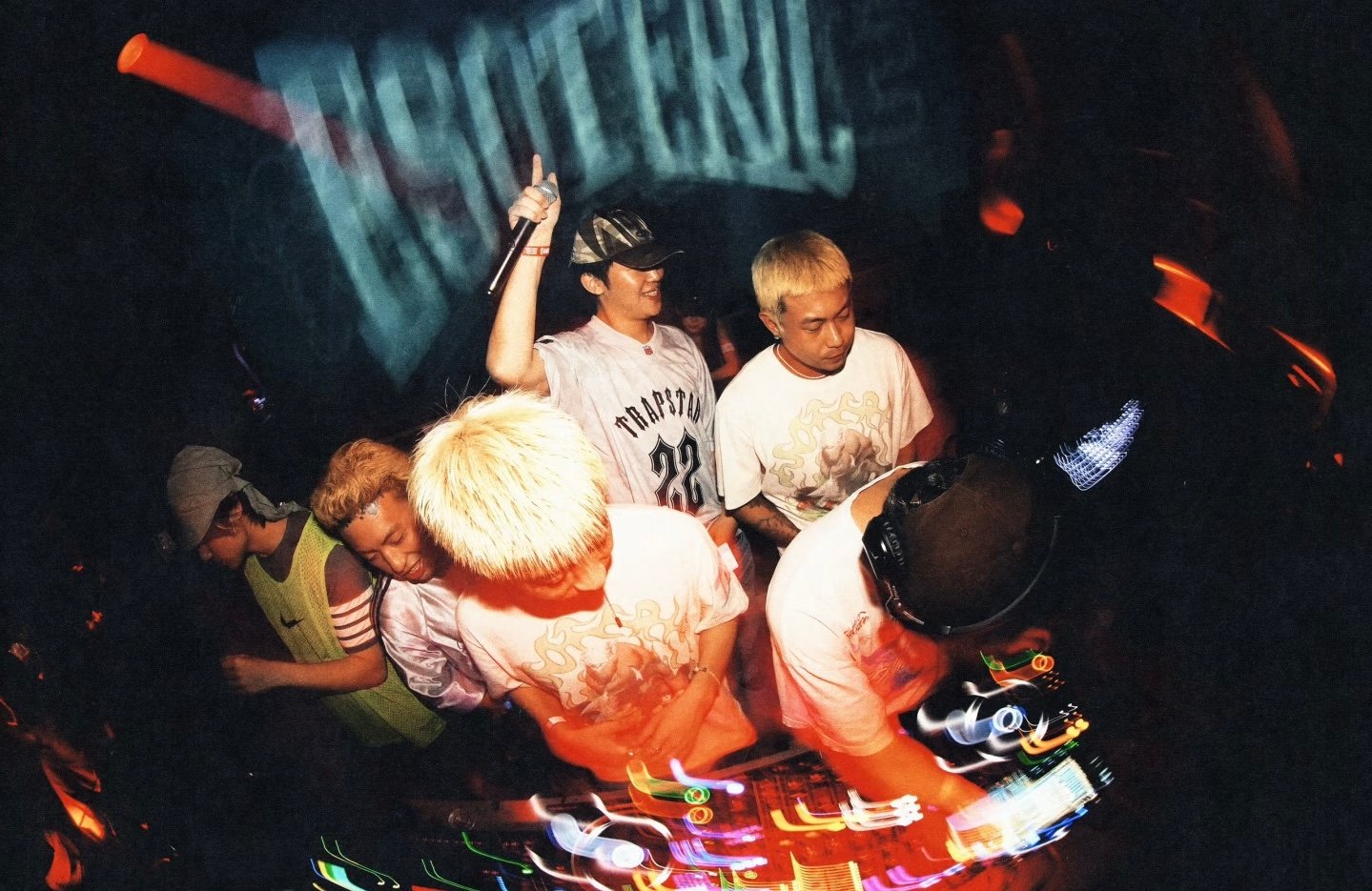RADII Voices is a series of short documentaries looking at the unique characters, scenes, and phenomena that define modern China.
Young, up-and-coming rapper Jinx Zhou is full of contradictions. A forceful presence who is unapologetically on her own journey to stardom, Jinx is on a mission.
She is rising out of the fecund underground hip hop scene in China, which has become perhaps the country’s most popular style of music in the past few years. Since returning to China after stints at higher learning institutes in the US, Jinx has established herself as a vibrant internet presence, and one of the most listenable young rappers in the country.
She operates across platforms like Chinese video site Bilibili and short video platform Douyin (China’s TikTok), as well as Instagram and YouTube, posting vlogs that focus on her life making music.
We first meet her at Innersect, the street fashion expo founded by Edison Chen back in 2017. She’s surrounded by an entourage, her iconic blonde plaits bob around her head, and she walks with her eyes above the crowd, exuding confidence and attracting stares.
But it wasn’t always this way for the rapper and online phenomenon. Just a few years ago, she was starting school in a foreign country, trying to figure out her way in the world and a way to fulfill her passion for music.

Born in the capital of entertainment in China, Changsha in Hunan province, Jinx grew up with a love for music, taking the opportunity to perform whenever she could. “Every year in elementary school and middle school we have our annual shows and I will dance or write my own song and then perform it,” she says. “I always like attention, that’s part of it.”
Her passion at this point was firmly in making music, but this path into the music industry was not something that her parents agreed with. “They always tell me that you couldn’t make it, or we don’t want you to make it in the music industry, it’s too complicated and we don’t know anything about it.”

Her first break in the entertainment industry was an appearance on a variety show on major streaming network iQIYI entitled I Supermodel. This was in 2016, when she was just 19. That first foray into TV was done on a whim, during her mid-term break from university. Yet she went on to make another TV appearance on Come Sing With Me (我想和你唱) not long after, a formative experience that helped her realize that she wanted to focus on music only.
“The people I met at the show were all pro singers, they do training and stuff,” she explains. “But me I’m just like all by myself and I have to worry about my education and school. I just feel like, how am I going to compete with them? At that point, I realized I needed to put more energy on my music.”
Related:
 Watch: High School DJ Gouachi on Music, Family, and China’s Generation GapArticle Jan 25, 2019
Watch: High School DJ Gouachi on Music, Family, and China’s Generation GapArticle Jan 25, 2019
She dropped out of university in Washington. She felt indifferent about her studies, but was also realizing how little she could relate to her peers at the time, as she was more intent on chasing her music dream.
“There’s so much I wanted to do but I just didn’t have the time and the energy and the circle,” she says about her decision to leave school. “I couldn’t have any sense of achievement, so I needed to drop out.”
She moved to Los Angeles and started creating her own music, while also linking up with locally-based producers such as Mike Gao.

She moved back to China in 2019, and reconnected with her old manager. But the only strategy she was presented with involved being pushed towards the rising variety shows in the country.
“They always tell me you have to make it before you make the music you want, but in my world it’s quite the opposite,” she tells us. “[I feel] you have to make the right song so that you can attract the right people. Instead of attracting as much attention as possible and then you convert into your true self — I think that’s not gonna work for me.”
Having already honed her image and having crafted a social media promotional strategy that was working, the idea of losing her freedom to a label which was pressuring her to go on TV shows she didn’t want to be part of was fundamentally something she did not want to do.

Rejecting the often suffocating 360 deals that the industry is keen to push (encompassing recording and variety show appearance contracts), Jinx is trying to establish her own model for success, trying to make her way in the music industry on her own terms. “I have to be responsible for my own career. Just like hustling. I want myself to like the hustle. I’m not that indifferent anymore.”
She’s taken full responsibility for her own career at this point, despite being in her early twenties, and is intent upon making people listen, on capturing attention with her unique musical style and with her look.
“I want to attract strangers when they walk into a show and they don’t who I am,” she says. “I want them to remember me, my musical style. I want them to walk out of the venue and be like ‘oh my god, who is that girl.’”
All images by Thanakrit Gu


















